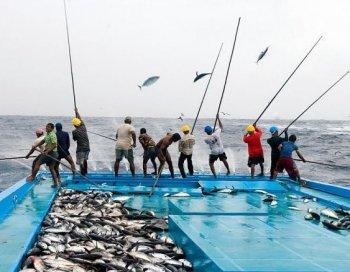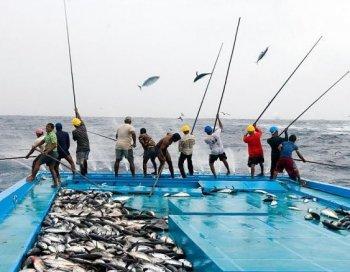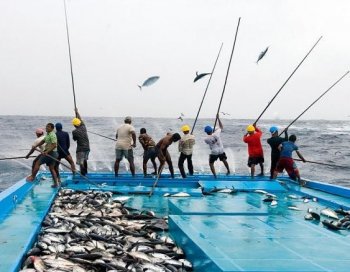Oceans Devastated by Decades of Abuse
The world’s oceans are rapidly approaching the point of losing its capacity to provide us with food, oxygen, and habitat.

Fishermen use the pole and line fishing method to catch skipjack tuna. Pole and line fishing is selective and therefore a more sustainable way to catch tuna as only fish of a certain size are caught, leaving juveniles to grow to spawning age and replenish the stock in the future. Small baitfish are thrown over the side of the boat to lure the tuna to the water surface. The fishermen use the acceleration of the fish as they race to get their prey, hook them, and fling them onto the ship's flat deck. Paul Hilton/Greenpeace
|Updated:






